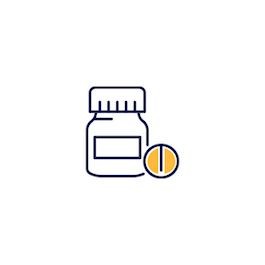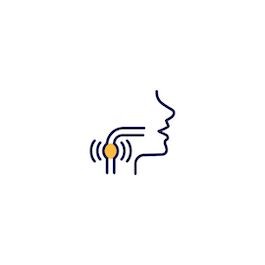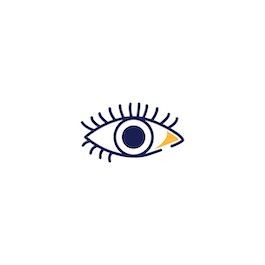Home remedies for alleviating viral diseases

Autumn is here and we are increasingly hit by various viral infections that cause runny noses, coughs, and sore throats. Although they are popularly known as colds, they are not caused by the chilly weather, but by various viruses.
A viral upper respiratory infection is a self-limiting illness. Sometimes, all symptoms will disappear within a day or two, but usually, a full recovery takes a little longer. It is possible to alleviate the symptoms of the disease, but its duration cannot be shortened by medications and treatments. Exceptions to this are influenza and COVID-19, in the case of which a doctor can prescribe a medicinal product for people in at-risk groups with a specific indication.
The symptoms of colds do not appear as soon as you are infected with the virus. The disease usually develops within a few days of infection. However, the infected person becomes infectious to others already during the latent period of the disease. Therefore, an outwardly (still) healthy person can be the source of infection.
The risk of contracting viruses can be reduced by avoiding close contact with sick people, washing hands thoroughly several times a day, getting plenty of fresh air, and ventilating rooms. It is not possible to be vaccinated against most viral respiratory infections, except for influenza and COVID-19.

How to relieve a runny nose?
Rhinitis, colloquially known as a runny nose – an inflammation of the nasal mucosa – is a common companion for many people, especially children, during the colder months. Viral rhinitis is a self-limiting illness that usually goes away within a week.
Clean your nose with saline solution.
Pharmacies sell solutions and nasal sprays containing table salt or sea salt. You can also use medicinal products (such as sprays or tablets) sold in pharmacies to reduce the swelling of the mucous membrane. They relieve nasal congestion, but do not cure a runny nose. Medicinal products should be used for as short a time as possible, definitely not more than seven days in a row.
Use disposable tissues for blowing your nose.
Ventilate your rooms and keep the air slightly more humid than usual.
Put humidifiers in rooms with dry air or lay wet towels on the radiators.
To help you breathe better at night, lift your head slightly higher.
If you do not have a fever when you have a cold, it is safe to go outdoors, as the cool air reduces the swelling of the nasal mucosa.

How to relieve a sore throat?
In most cases, a sore throat is caused by a viral infection. Viruses that most commonly cause inflammations of the throat are rhinoviruses, influenza viruses, and adenoviruses. Other symptoms of a viral infection, such as a runny nose, cough, fever, and malaise usually occur along with a viral inflammation of the throat. A viral inflammation of the throat lasts for 4–5 days and passes without specific treatment.
For a sore throat, you can take either paracetamol or ibuprofen.
It is important to drink small amounts and often, as this will moisten the mucous membranes in the throat. Both hot and cool drinks are suitable (water, tea with lemon and honey, chicken broth).
Throat sprays and sucking tablets do not speed up recovery from the disease, but relieve symptoms in the short term. These medicinal products should in no case be used on children under the age of seven.

How to relieve a cough?
The most common cause of a cough is a viral upper respiratory infection, which will heal itself over time. Antibiotics are of no use for a viral cough.
Clear your nose and keep your nasal breathing as free as possible.
An irritated cough can be caused by secretions that have run down your throat from a runny nose or a throat that has become dry due to breathing through your mouth.
Consume plenty of liquid.
A warm (not hot) drink soothes an irritated throat and makes it easier to expectorate mucus. You can make herbal tea.
When lying in bed, lift the head slightly higher.
This will reduce the amount of nasal secretions leaking into the throat.
Cough syrup made from honey or herbs can help relieve an irritated cough. Other cough syrups should be used if advised by a doctor or nurse.
Apply goose fat to your chest or take a warm foot bath.
Cough medicines should only be used if it has been advised by your doctor.

How to relieve an eye inflammation?
In the case of an inflammation of the mucous membranes of the eye, the white of the eye and the inside of the lower eyelid become red and may be stinging. The most common cause of eye infections is a viral infection – in that case, other symptoms include a runny nose, a cough, and watery discharge from the eye. A viral eye infection will pass within seven to ten days.
Wash your hands thoroughly before and after cleaning your own eyes or the eyes of your child.
Use a soft cloth or cosmetic cotton wool pads moistened with clean boiled chilled water or a physiological solution bought from a pharmacy to clean your eyes.
Wipe your eye in one direction.
Use a new clean section of the cloth or a new cotton pad for each wipe, as eye infections are very contagious!
Change towels and pillowcases often.
Eye irritation can be relieved by applying a warm compress to the eye or by using eye drops (available over the counter from your pharmacy).
Kui kerged haigustunnused nädalaga ei kao või hoopis süvenevad, tuleks konsulteerida oma perearstikeskusega.
Enne perearsti poole pöördumist tutvu võimalusel oma perearstikeskuse kodulehega. Sageli on kodulehe kaudu võimalik saata oma terviseprobleemi kirjeldus, alustada ja lõpetada haigus- ja hoolduslehte, tellida kordusretsepti jne.
